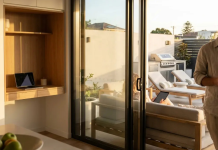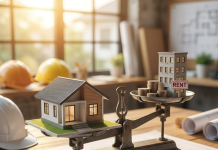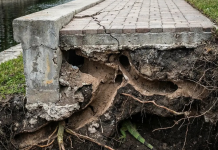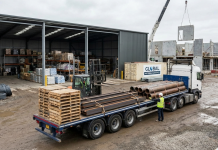Key Takeaways
- Thoughtful apartment renovations can truly boost your property’s value and help you attract tenants willing to pay premium rents in today’s competitive market.
- Upgrading kitchens and bathrooms is a tried-and-true way to get the most bang for your buck, often recouping 80-90% of what you spend.
- Partnering with a licensed, experienced contractor means your renovation will meet all building codes, secure the right permits, and be crafted with quality workmanship—saving you from costly headaches.
- Careful planning with a realistic budget—including a 15-20% cushion for those unexpected surprises—and a clear timeline keeps your project running smoothly and stress-free.
- Adding energy-efficient features and smart home tech not only attracts discerning tenants but also cuts your long-term operating costs.
Renovating your apartment is one of the smartest moves you can make to increase your property’s value and attract quality tenants in Vancouver’s fast-paced rental market. Whether you’re an investor aiming to maximize returns or a homeowner wanting to refresh your living space, knowing the ins and outs of the renovation process is key to getting excellent results.
Apartment renovations come with their own unique challenges compared to single-family homes—stricter building codes, shared building systems, and the need to keep good relations with neighbors all require thoughtful planning and expert execution.
This guide walks you through every step, from initial ideas to the finishing touches, helping you avoid common pitfalls and make the most of your investment. For flooring upgrades, consider professional hardwood floor repair and refinishing to keep that classic charm. And if you’re working in a multi-unit building, teaming up withstrata-approved condo renovation services ensures everything goes smoothly and by the book.
What Are Apartment Renovations and Why Do They Matter?
Apartment renovations cover everything from quick cosmetic updates to full-on gut renovations that completely change your layout. These projects require careful planning, smart design choices, and skilled craftsmanship to breathe new life into your apartment’s interior.
Unlike houses, apartments have tighter building codes, shared infrastructure like elevators and plumbing, and strict noise rules to keep the peace with neighbours. These factors influence every decision you make—from the first sketch to the final inspection.
How Renovations Impact Property Value and Rental Income
A well-done apartment renovation can seriously boost your property’s market value. Kitchen and bathroom upgrades, in particular, tend to offer the best returns. Renovated units attract better tenants, command higher rents, and spend less time sitting empty.
Today’s renters expect modern features, energy-efficient appliances, and stylish finishes. Smart renovations keep your rental competitive and highly sought-after in Vancouver’s demanding market.
Benefits for Property Owners
Besides increasing value and rental income, thoughtful renovations also:
- Help you fill vacancies faster
- Bring in long-term, reliable tenants
- Cut down on ongoing maintenance headaches
- Improve energy efficiency and lower utility bills
- Give you personal satisfaction if you live there yourself
Types of Apartment Renovations
Knowing the different types of renovations helps you decide what’s right for your budget, timeline, and goals.
Cosmetic Renovations
These are surface-level updates that freshen up your apartment’s look without changing the structure, like:
- Professional painting with high-quality finishes
- Modern light fixtures and ceiling fans
- Updated cabinet hardware and faucets
- Stylish window treatments and blinds
Cosmetic work usually needs minimal permits and can be done quickly, giving your apartment an instant style boost.
Functional Upgrades
These improvements make your space more usable while keeping the layout intact, such as:
- Energy-efficient kitchen appliances
- Modern bathroom fixtures, including walk-in showers
- Clever storage and organization systems
- Enhanced lighting for better ambiance and function
- Smart thermostats for comfort and savings
These upgrades meet real tenant needs and offer great value without the hassle of major construction.
Structural Changes
Structural renovations involve changing layouts and require permits and approvals, including:
- Taking down non-load-bearing walls for an open-concept feel
- Reconfiguring rooms or adding new spaces
- Moving kitchens or bathrooms (with building approval)
- Custom built-in storage solutions
- Accessibility upgrades
These projects take more time and need experienced contractors familiar with condo regulations to ensure everything’s up to code.
High-Impact Renovation Areas
Some rooms consistently deliver the best value and deserve your focus.
Kitchen Renovations
Kitchens usually offer the highest return on investment. Focus on:
- Durable, beautiful quartz or granite countertops
- Refacing or custom cabinetry
- Energy-efficient, modern appliances
- Eye-catching backsplashes that blend style and function
- Layered lighting for both task and mood
Smart designs make even small kitchens feel spacious and inviting to tenants.
Bathroom Updates
Bathrooms can add big value with upgrades like:
- Space-saving wall-mounted vanities
- Luxurious walk-in showers with quality fixtures
- Stylish tile work with contemporary patterns
- Modern faucets and lighting
- Built-in storage niches
Remember to budget for plumbing and ventilation needs.
Flooring Improvements
Good flooring can transform your apartment’s vibe. Consider:
- Timeless hardwood floors
- Durable luxury vinyl plank for busy areas
- Premium tile in bathrooms and entryways
- Removing old carpet for a cleaner, modern look
Check noise bylaws before choosing materials, especially in multi-unit buildings.
Planning Your Apartment Renovation Project
Planning well helps you avoid costly surprises and keeps your renovation on track.
Setting Realistic Renovation Goals
Start by defining what you want: more rental income, a better living experience, or prepping to sell. Clear goals keep your scope and budget focused and prevent unexpected expenses.
Creating a Detailed Timeline
A typical renovation timeline looks like this:
Pre-construction Phase (1-2 months)
- Design and material choices
- Permit applications and strata approvals
- Choosing contractors experienced with condos
- Scheduling deliveries and work
Construction Phase (2-3 months)
- Demolition and prep
- Electrical and plumbing rough-ins
- Inspections and approvals
- Flooring, painting, and finishing
- Final walkthrough and sign-off
Structural jobs need extra time, so build in buffers.
Obtaining Permits and Approvals
Most renovations beyond paint and fixtures need permits. Condo boards usually want to approve plans too. Knowing this upfront saves headaches and delays.
Budgeting for Success
Break down costs for labor and materials. Always set aside 15-20% for those unexpected surprises like old wiring or hidden plumbing issues.
Think about financing options and factor in borrowing costs.
Choosing the Right Renovation Contractor
Picking the right contractor is critical.
Research and Vetting
- Check online reviews and licenses
- Ask property managers for referrals
- Interview multiple pros with condo experience
- For flooring, look for hardwood specialists
Evaluating Proposals
Get detailed written estimates covering scope, materials, timeline, and payment. Avoid vague quotes.
Understanding Contracts
Make sure contracts spell out work scope, materials, deadlines, payments, warranties, and change order processes.
Managing the Renovation Process
Good project management keeps things on track and up to standard.
Communication
Stay in touch with your contractor and building management. Coordinate elevator use and debris removal to minimize neighbor disruptions.
Quality Control
Inspect work at key stages and report any issues immediately.
Handling Unexpected Issues
Old buildings often hide surprises. If something comes up, pause work, get written change orders, and use your contingency fund to fix it safely.
Maximizing Space in Small Apartments
Smart design can make even tiny apartments feel roomy.
Open Floor Plans
Removing non-load-bearing walls opens up space and lets natural light flood in. Always check structural safety first.
Vertical Storage
Use floor-to-ceiling cabinets, floating shelves, and fold-down furniture to maximize every inch.
Multi-Functional Furniture
Choose pieces that serve multiple purposes and have built-in storage to keep clutter at bay.
Modern Trends and Smart Home Integration
Tech and sustainability attract tenants and save money over time.
Smart Home Features
Add smart thermostats, keyless entry, security cameras, and intelligent lighting controls.
Energy Efficiency
Pick ENERGY STAR appliances, LED lighting, low-flow plumbing, and better insulation.
Sustainable Materials
Use bamboo floors, low-VOC paints, recycled countertops, and water-saving fixtures.
Legal Considerations and Building Compliance
Make sure your renovation follows all electrical, plumbing, structural, and fire safety codes. Get condo board approvals, manage noise control, and coordinate elevator use. Verify insurance coverage protects you from liability.
Common Renovation Mistakes to Avoid
- Underestimating budgets and skipping contingencies
- Setting unrealistic timelines without permit delays factored in
- Choosing contractors just because they’re cheapest
- Letting the project scope creep without change orders
- Skipping inspections to save time or money
- Over-improving beyond neighborhood standards
- Forgetting to plan for financing or rental income interruptions
Measuring Renovation Success and ROI
Track your renovation’s success by:
- Noticing higher market value
- Charging better rents and filling vacancies faster
- Attracting quality tenants and lease renewals
- Cutting maintenance and energy costs
Choose durable materials and timeless designs for lasting appeal.
FAQ
How long does an apartment renovation usually take?
Simple cosmetic updates: 2-4 weeks; kitchen and bathroom renovations: 2-4 months; major structural work: 4-6 months or more.
Do I need permits, and who gets them?
Most work beyond paint needs permits. Licensed contractors usually handle this, but owners are responsible. Condo boards often require plan approval too.
What if unexpected problems are found?
Stop work, document issues, get repair estimates, and use your contingency fund for safety and code fixes.
Can I live in my apartment during renovations?
Minor work might let you stay; major renovations usually mean finding temporary housing.
How do I know if my budget is realistic?
Research the market, get multiple detailed quotes, include contingencies, and explore financing early on.









